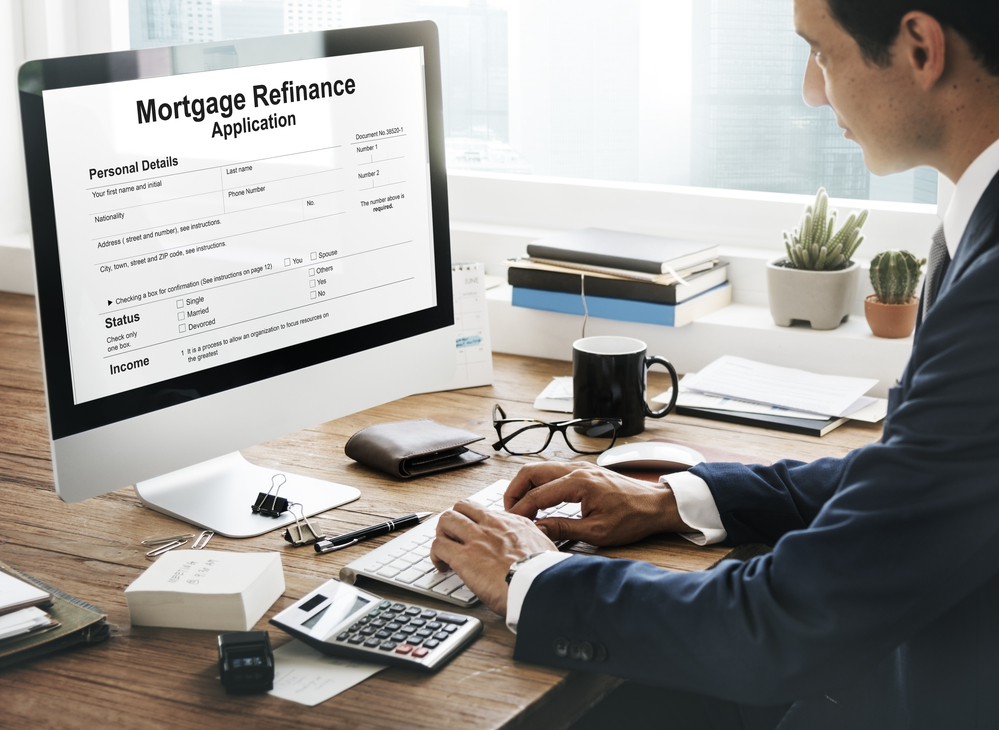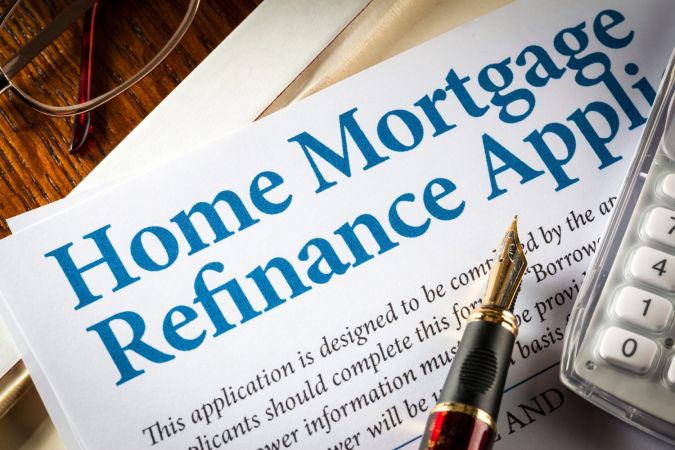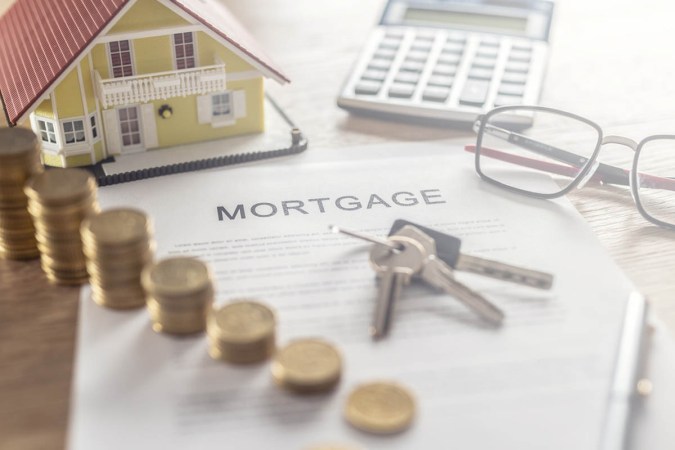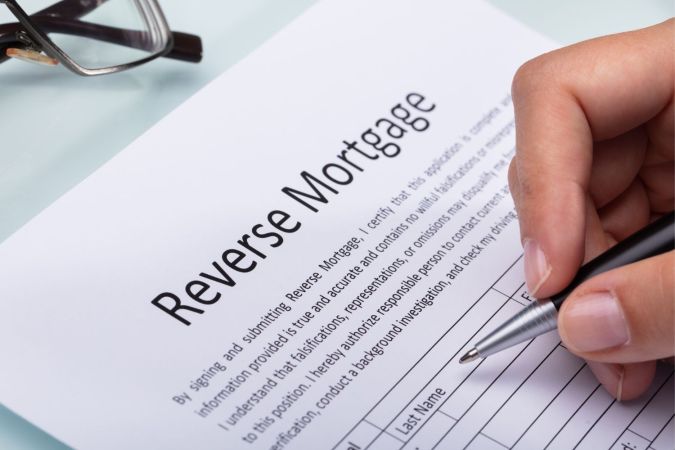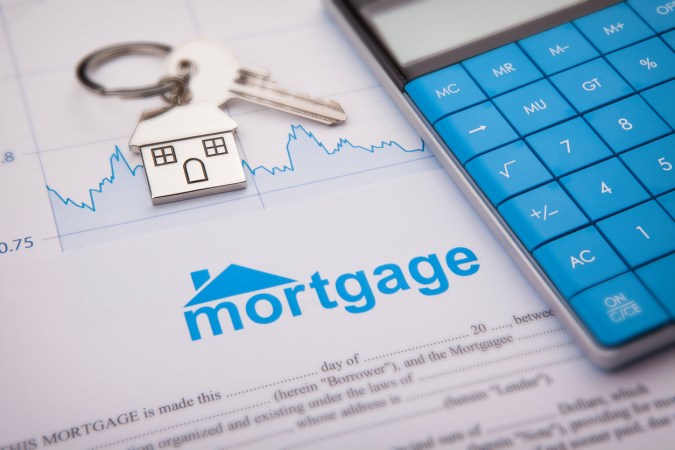We may earn revenue from the products available on this page and participate in affiliate programs. Learn More ›
Q: A friend just refinanced his mortgage and got a great deal with a lower monthly payment. I’m considering doing the same, but I’m a little unsure about what it entails. Should I refinance my mortgage?
A: In recent years, many homeowners have refinanced their mortgage to lock in a lower interest rate and lower their monthly payments. Lenders make refinancing look like an appealing option by advertising everything from lower mortgage payments to reduced interest rates to more favorable loan terms. These can definitely be some strong benefits of refinancing a mortgage. Homeowners could even get a lump sum of cash through refinancing to use toward paying off other debts, completing a home renovation, paying tuition fees, and more. However, refinancing may not be a good option in every situation. Read on to learn about when refinancing makes sense and when it might be better to hold off.
Mortgage refinancing is essentially taking out a new mortgage with different terms to pay off an existing mortgage.
Mortgage refinancing may sound complex, but it’s actually a relatively simple process. When homeowners refinance their mortgage, they are essentially replacing their original home loan with a new one that has different, and ideally more favorable, terms. The principal (the amount of money you borrow) and interest rate usually change, which is one of the main benefits of refinancing. Once the refinanced loan is approved, the old loan is paid off and the homeowner begins making payments on the new loan.
Many times, homeowners can get a lower interest rate when refinancing because interest rates may have fallen since they originally purchased their home, or a homeowner could be eligible for better rates and wants to take advantage of that. A lower rate is one of the primary reasons people choose to refinance their mortgage. There are many other perks, which will all be covered more below.
Refinancing can help homeowners secure a better interest rate or loan term on their mortgage.
When should you refinance your mortgage? Generally, if a homeowner can refinance for a lower interest rate or a shorter term while also reducing their monthly payment, it’s an option well worth considering. As mentioned above, one of the biggest benefits is that homeowners can secure better interest rates when they refinance mortgage rates and terms. Interest rates tend to fluctuate over time. This means there are homeowners who may have purchased their home at a time when interest rates were higher than they are currently. If interest rates have fallen since then, refinancing could help these homeowners access better rates. Even if interest rates haven’t changed a lot, a homeowner could have improved their credit score during this time, possibly unlocking lower rates for them to take advantage of through a mortgage refinance.
Another potential advantage of home loan refinancing that makes it quite popular is that the homeowner could secure a shorter loan term. For example, a homeowner may have had an increase in income and be looking for a shorter loan term. Having a shorter loan term with a higher monthly payment would allow this homeowner to pay off their home early. In this example, a homeowner with a 30-year mortgage may choose to refinance to a 15-year mortgage instead.

Refinancing to a longer loan term can help lower payments if the homeowner is struggling to make mortgage payments.
Mortgage refinancing can also benefit homeowners who experience a decrease in their monthly income. In this situation, refinancing to a longer loan term could result in lower monthly payments to give the homeowner more room in their monthly budget. If the homeowner currently has a 15-year term, they may choose to refinance to a 30-year mortgage to ease their monthly payments. Alternatively, they might choose to refinance an existing 30-year mortgage to another 30-year mortgage with a more favorable interest rate, which can also reduce monthly payments.
The lower payments can help homeowners who find themselves in a situation where their income has decreased since purchasing the home. These homeowners may also be facing an increase in outstanding debts and need more room in their monthly budget to pay these additional expenses.
Lenders generally recommend refinancing a mortgage if it will reduce the interest rate by 1 to 2 percent.
A homeowner who is asking, “Should I refinance my house?” can have a tough time knowing whether a refinance is the right choice. Homeowners who are strongly considering refinancing but aren’t sure whether the time is right should see how much lower their interest rate will be after a refinance. Lenders generally recommend that refinancing should reduce the interest rate by at least 1 to 2 percent to make it worth the cost of refinancing the loan. Having that rule can give home homeowners a benchmark to decide if refinancing is right for them. However, some lenders even state that a 0.5 percent reduction in interest rate can make a huge difference for some borrowers.
The main point to keep in mind is that the interest rate should ideally create a more favorable borrowing situation for the homeowner. If the interest rate doesn’t budge or it even goes up, then it generally does not make sense to refinance the mortgage.
Refinancing from an adjustable-rate mortgage (ARM) to a fixed-rate mortgage may save the borrower money over the term of the loan.
It’s important to choose the best scenario for refinancing, like finding the best loan terms. For instance, refinancing might allow a homeowner to move from an adjustable-rate mortgage to a fixed-rate mortgage or vice versa. Adjustable-rate mortgages mean your monthly payment can change over the life of the loan based on what interest rates are doing.
Adjustable-rate mortgages also often go up, and sometimes by quite a bit. They typically have initial discounted rates and then increase over time. The Federal Reserve Board gives the example of an ARM that started with an initial 4 percent discounted rate, which then increased to 7 percent in the second year. It doesn’t sound like much, but that homeowner went from a $954.83 mortgage payment in the first year to a $1,320.59 mortgage payment in the second year. For this reason, adjustable-rate mortgages can make it more difficult for homeowners to create an accurate monthly budget. Meanwhile, a fixed-rate mortgage keeps the same interest rate for the life of the loan, which means the mortgage payment remains the same year after year. So while other costs may go up over the years, like gas and food, the mortgage payments on a fixed-rate mortgage stay the same, which makes it easier to budget.
Another drawback to an adjustable-rate mortgage is that homeowners could end up in a situation where the amount they owe on the home increases even with on-time payments. If the monthly mortgage payments are not enough to pay off the interest due on the mortgage, this creates a situation called negative amortization where the homeowner owes more than they initially borrowed. In this case, refinancing to a fixed-rate mortgage can help the homeowner stay above water and may lead to long-term savings.
A cash-out refinance gives the homeowner access to their home’s equity to help pay for home repairs or renovations, additional debt, or unexpected bills.
Homeowners asking, “Should I refinance my home?” should also be aware of another potential benefit to refinancing. If the homeowner has built enough equity in their home, they may be able to get a cash-out refinance, which provides homeowners with a lump sum of cash from their equity. Homeowners can access these newly released funds to take care of additional debt like credit cards, pay for unexpected medical bills, or even make repairs and renovations to the home itself, like building that coveted addition. In some cases, the interest on a cash-out refinance may also be tax-deductible.
However, homeowners considering this option might want to proceed with caution. The cash that a homeowner receives from this type of refinance will still need to be repaid, which can mean a higher monthly payment on the refinance’s mortgage. This, in turn, can lead to more debt, and the homeowner risks losing their home if they are unable to make the payments. It’s important for homeowners to assess their true needs for the cash-out option, long-term goals for paying off their mortgage, and comfort levels with the increased debt amounts before proceeding.
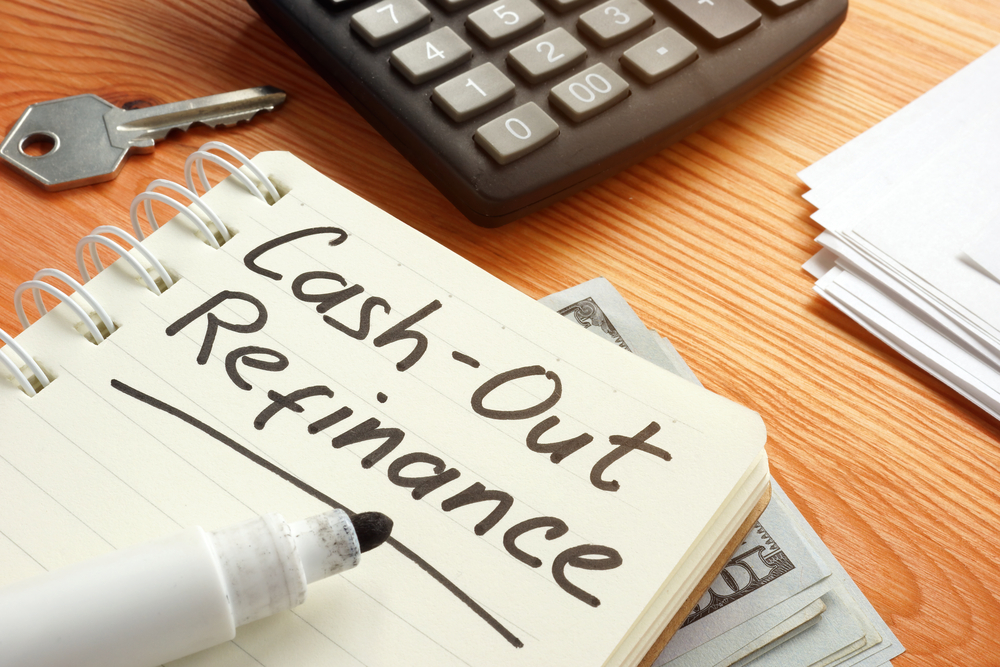
Refinancing can allow homeowners to switch from one type of loan to another.
Refinancing can help homeowners switch from one type of loan to another, if they so choose. It’s common to find other loan types with more favorable requirements for the homeowner.
As an example, a homeowner might have initially set up an FHA loan when they purchased the home. As time went on, that homeowner might have found a more conventional loan that better suited their financial goal. An FHA loan requires the homeowner to pay mortgage insurance premiums for the lifetime of the loan. By switching to another loan type, that homeowner would eliminate that requirement, leading to savings and likely a lower monthly mortgage payment.
Refinancing costs could range anywhere from 2 to 6 percent of the loan’s principal.
Refinancing a mortgage does come with costs, however. As with the original mortgage, the homeowner would have additional fees and closing costs when refinancing, since refinancing a mortgage is simply replacing the old mortgage with a new one with better terms and rates.
Since costs can range anywhere from 2 to 6 percent of the loan’s principal depending on the lender and the borrower, it’s important to calculate what those costs would be before moving forward with refinancing. The amount the homeowner is saving from the refinance needs to ideally be more than what they are spending on closing costs. They might even determine that breaking even would be acceptable if the terms of the loan were that much more favorable. These costs, overall, are the number one influence affecting when to refinance.
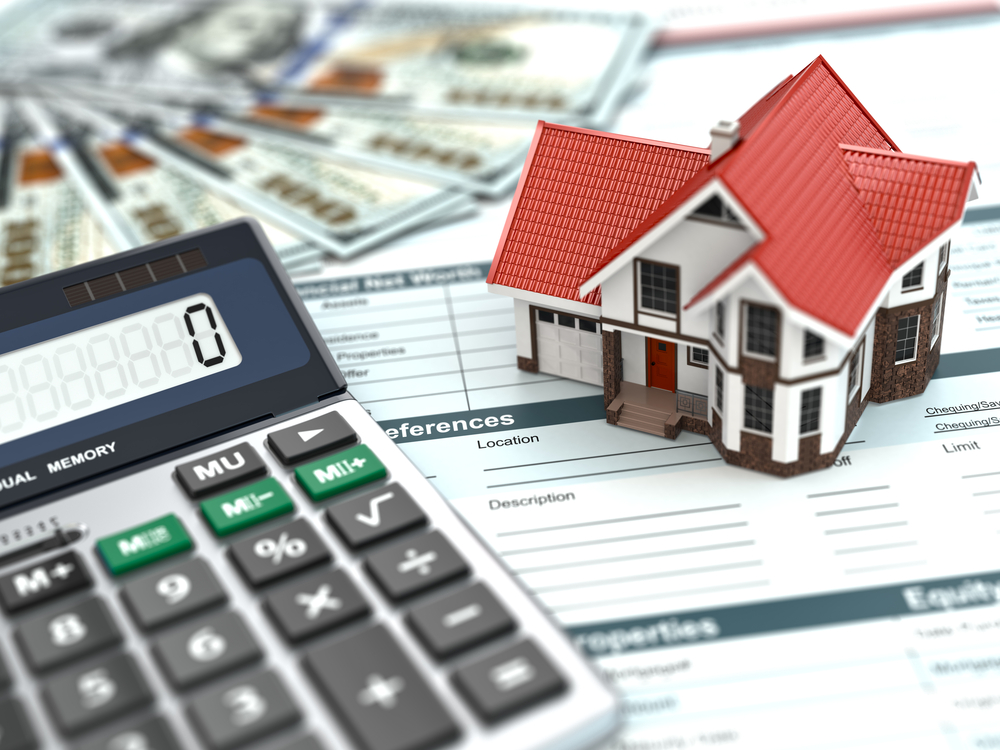
Refinancing may not be a good choice for homeowners who plan to sell their home soon or who are close to paying off their mortgage.
Does it make sense to refinance? Not in every situation. There are some drawbacks to keep in mind while trying to figure out when to refinance mortgage loans. While refinancing comes with many perks, it’s not the answer for everyone. One of the major situations where it might not make sense to refinance a mortgage is if the homeowner is planning on selling their home very soon. In this scenario, the homeowner would be taking on the costs of setting up a new mortgage they wouldn’t be keeping for long, which can result in them losing money.
Conversely, homeowners who do plan to move within the next few years may benefit from refinancing to a new 30-year mortgage loan with lower payments and a cash-back amount. In this situation, the lump sum of cash can help the homeowner repair or upgrade the home to increase its value when selling, or to pay off debts to make saving for a new home easier.
However, a situation where it almost never pays to refinance is if the homeowner is close to paying off their home. In this case, refinancing would open up years and years of debt, incur unnecessary closing costs, and could encourage borrowing equity out of a home someone is close to owning outright. Mortgages that are close to being paid off also have a minimal amount of the monthly payments going toward interest, since later payments go mostly toward the principal.
Mortgage refinancing can be a good financial decision if it helps the homeowner lower their interest rate, shorten their loan term, or build equity in their home more quickly.
So, when does it make sense to refinance? In general, home refinancing should benefit the homeowner in one of three main ways. The main benefit to refinancing is that it could lower the interest rate and thus reduce how much the homeowner owes on the loan over the long term. Refinancing can also be a good idea if it shortens the loan term, such as going from a 30-year mortgage to a 15-year mortgage.
Getting a new mortgage through refinancing can also help homeowners build equity in their home more quickly, with less money going toward interest or the loan term being shortened. To find out if these situations apply, homeowners may want to consider getting a no-obligation refinance quote from a lender.
